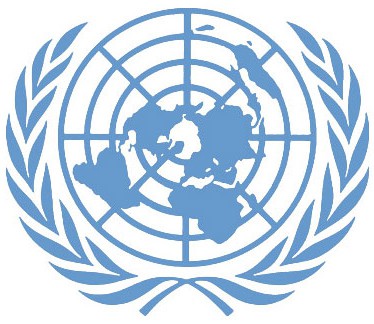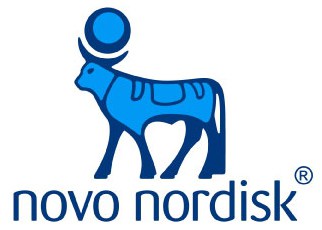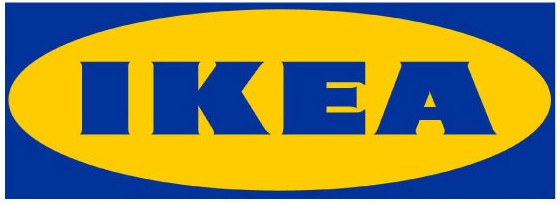Localized Communication Strategy Services
Localization is the last mile of the communication journey. Having invested so much care, time, expertise, and budget on your message, make sure it creates the desired effect when it arrives at its final destination. It’s here where small mistakes with the language or culture can make a big difference in how your message and brand are received.

- 1. What is a Localized Communication Strategy?
- 2. Why do we need a Localized Communication Strategy?
- 3. Do I need a Localized Communication Strategy if I already have a Messaging Platform?
- 4. What are the key elements of a Localized Communication Strategy?
- 5. How can Duffy Agency help develop my organization’s Localized Communication Strategy?
What is a Localized Communication Strategy?
While the Global Messaging Platform defines what needs to be said, the Communication Strategy will define how that message should be delivered locally. A Localized Communication Strategy is a comprehensive plan that outlines how an organization will effectively communicate with its target audience and stakeholders within the context of its local market. It defines the goals, objectives, key messages, target audience, communication channels, and tactics to be used to convey those messages in a particular market. A Communication Strategy takes into account the organization’s Brand Identity, values, and business objectives to ensure consistent and impactful communication. It provides a roadmap to inform all marketing activities, including internal and external communication, public relations, product information, crisis management, and digital engagement. The local communication strategy guides the organization in delivering the right messages, in the right language and cultural context, through the right channels, to the right audience, with the ultimate aim of achieving desired outcomes and building strong relationships. The Localized Communication Strategy addresses the communication nuances for each market and provides the framework and Guidelines to make local modifications without diluting the Brand Identity.
Why do we need a Localized Communication Strategy?
The alternative to developing a Localized Communication Strategy is simply to provide the local team and their vendors with the Brand Identity and Messaging Platform and hope they all interpret it in the same way and stick to its directives. Since the output of their activities may be in a language you do not speak and/or a culture where you do not live, you may never really know how well they are sticking to the script. Directing the localization of the Communication Strategy centrally provides international marketers with an extra measure of control and brings several valuable benefits to an organization. Here are some key advantages:
- Consistency: A Localized Communication Strategy ensures consistency in messaging and branding across varied markets and cultures. It allows for a unified brand voice and image, enhancing brand recognition and establishing a cohesive global identity.
- Global Reach: A well-executed Localized Communication Strategy enables organizations to effectively reach diverse audiences in various regions and countries. It considers cultural nuances, language preferences, and communication channels specific to each market, maximizing the impact of communication efforts.
- Efficient Resource Allocation: A Localized Communication Strategy helps optimize resource allocation by identifying shared resources, tools, and platforms that can be utilized across multiple markets. It minimizes duplication of efforts, reduces costs, and streamlines communication processes.
- Cultural Sensitivity: A Localized Communication Strategy takes into account cultural sensitivities and local customs, ensuring that messages resonate with target audiences and mitigate potential misunderstandings or misinterpretations. It demonstrates respect for local cultures and fosters positive relationships with stakeholders.
- Global Reputation Management: A centrally-controlled Communication Strategy enables organizations to effectively localize their messaging while managing their reputation on a global scale. It provides Guidelines for handling crises, addressing issues, and maintaining a positive Brand Image across different markets, helping to protect and enhance brand reputation.
- Knowledge Sharing and Collaboration: A centrally-controlled Communication Strategy encourages knowledge sharing and collaboration across international teams and markets. It facilitates the exchange of best practices, insights, and success stories, fostering a culture of learning and continuous improvement.
- Strategic Alignment: A centrally-controlled Communication Strategy ensures alignment between global messaging and the organization’s overall business goals and objectives. It enables consistent communication of key business priorities, values, and strategic initiatives across all markets, reinforcing organizational unity and direction.
- Competitive Advantage: By effectively communicating a consistent Brand Image and Value Proposition in each local market, organizations can gain a competitive advantage in the international marketplace. A strong Localized Communication Strategy positions the organization as a trusted and preferred choice among global customers.
In summary, developing a Localized Communication Strategy enables organizations to achieve consistency, maximize reach, optimize resources, demonstrate cultural sensitivity, manage reputation, foster collaboration, align strategically, and gain a competitive edge in the global arena. It is a valuable investment that helps organizations effectively navigate the complexities of international markets and build strong global relationships.
Do I need a Localized Communication Strategy if I already have a Messaging Platform?
Yes, even if you have a Global Messaging Platform for your brand, you should still develop a Localized Communication Strategy. They are related but not the same. While a Messaging Platform focuses on crafting the core messages and language for your brand, a Localized Communication Strategy takes a narrower perspective and outlines the approach and tactics for effectively delivering those messages to a specific local target audience and achieving local objectives. Here’s why investing time in developing a Localized Communication Strategy alongside a Messaging Platform is crucial for global brands:
- Audience Targeting: A Localized Communication Strategy helps identify and understand your target audience, their culture, preferences, behaviors, and communication channels. It ensures that your messaging is tailored to resonate with specific audience segments, maximizing the impact of your communication efforts.
- Channel Selection: A Localized Communication Strategy guides the selection of channels and platforms with which to reach your target audience effectively. It ensures that your messages are delivered through the appropriate media, such as social, email marketing, PR, events, or advertising, optimizing your reach and engagement.
- Integration and Consistency: A Localized Communication Strategy ensures consistent and integrated messaging across various communication channels. It aligns your Messaging Platform with specific tactics, timelines, and channels, creating a cohesive and unified brand presence across different touchpoints.
- Crisis Management: A Localized Communication Strategy includes plans for crisis communication and reputation management. It outlines the steps to take in the event of a crisis or negative publicity, ensuring a timely and effective response that minimizes damage to your brand’s reputation.
- Measurement and Evaluation: A Localized Communication Strategy establishes metrics and evaluation methods to measure the effectiveness of your communication efforts in a particular market and in line with your objectives for that market. It allows you to track key performance indicators, gather feedback, and make data-driven adjustments to optimize your messaging and tactics over time.
- Scalability and Growth: A Localized Communication Strategy provides a scalable framework for your brand’s communication efforts as your business grows. It allows you to adapt and expand your messaging and channels as your target audience, market, and business objectives evolve.
- Alignment with Business Goals: By developing a Localized Communication Strategy, you ensure that your messaging and communication efforts align with your overall business goals and objectives. It establishes a clear link between your brand’s communication and its impact on driving revenue, customer acquisition, brand loyalty, or other desired outcomes.
Investing time in developing a Localized Communication Strategy complements the foundational work of a Messaging Platform, enabling you to effectively deliver your messages, engage your audience, build relationships, and achieve your business objectives for a particular market. It brings cohesion, focus, and strategic direction to your brand’s communication efforts, ensuring that your Messaging Platform is effectively executed and integrated into a comprehensive and impactful communication plan.
What are the key elements of a Localized Communication Strategy?
Creating or revising a Localized Communication Strategy requires the following key elements to ensure effective and successful communication with the local market:
- Market Research and Segmentation*: Conduct comprehensive market research to understand the cultural, social, economic, and political factors influencing each target market. Segment your audience based on demographics, psychographics, and other relevant factors to tailor your messaging effectively.
- Clear Objectives*: Define clear communication objectives for each target market aligned with your overall business goals. These objectives could include increasing brand awareness, driving sales, enhancing brand reputation, or improving customer engagement.
- Consistent Branding: Maintain consistent branding elements such as logo, colors, and visual identity across all markets, ensuring a unified global Brand Image while adapting to cultural preferences and local nuances.
- Message Localization: Adapt your messages to resonate with local audiences while maintaining brand consistency. Translate and localize content to reflect cultural sensitivities, language preferences, and local market expectations.
- Communication Channels: Identify the most effective communication channels and platforms in each target market. Consider digital channels, social media platforms, traditional media, influencer partnerships, and other relevant avenues to reach your audience.
- Cultural Sensitivity: Pay careful attention to cultural differences and local customs to avoid potential misinterpretations or misunderstandings. Tailor your communication to respect and resonate with the cultural sensitivities of each target market.
- Integrated Marketing Communications: Develop an integrated approach to communication that aligns various marketing channels and activities. Ensure consistency and synergy between advertising, public relations, content marketing, social media, and other communication efforts.
- Team Collaboration and Training: Foster collaboration and knowledge sharing among global teams responsible for communication. Provide training on cultural awareness, effective communication strategies, and market-specific nuances to enhance the effectiveness of global communication efforts.
- Performance Measurement: Define relevant metrics and KPIs to measure the success and impact of your Localized Communication Strategy. Monitor and evaluate key indicators such as brand visibility, engagement levels, audience reach, conversions, and customer feedback to track performance and make data-driven improvements.
- Continuous Adaptation: Remain flexible and adaptive to evolving market dynamics, consumer preferences, and emerging communication trends. Regularly review and refine your Localized Communication Strategy to stay relevant and responsive to changing local landscapes.
By incorporating these key elements into your Localized Communication Strategy, you can create a framework that enables effective communication, localization, cultural sensitivity, and market-specific messaging while maintaining brand consistency and achieving your global business objectives.
How can Duffy Agency help develop my organization’s Localized Communication Strategy?
Duffy Agency provides all aspects of the Localized Communication Strategy described above:
- Market Research and Segmentation
- Clear Objectives
- Consistent Branding
- Message Localization
- Communication Channels
- Cultural Sensitivity
- Integrated Marketing Communications
- Team Collaboration and Training
- Performance Measurement
- Continuous Adaptation
Duffy Agency provides a great deal of flexibility in designing these programs to match the needs of the organization and the wishes of the leadership team. You can select one of the three approaches below or combine the different approaches below to different aspects of the project.
1. Turnkey
We can develop the Localized Communication Strategy for your organization ourselves. This is often the best option for small to mid-sized companies that may not have a dedicated Strategic Marketing team
2. Cooperative
We can develop a Localized Communication Strategy in cooperation with your people. The Agency takes the lead but runs the project, holds workshops, and delegates work to the organization along the way. This is often the best option when the organization has a marketing department but they are not experienced in developing Brand Identity.
3. Instructional
We can train people in your organization to develop the Localized Communication Strategy themselves. This is often the best option for companies that have a functioning marketing department but are trying to introduce more uniform marketing best practices in the organization.
Get in touch if it sounds like you could use our help with your Localized Communication Strategy.
Contact us
Contact us to discuss which approach may work best for your organization.
This form collects your details so that we can provide you with further information in answering any questions you may have submitted. Check out our privacy policy for the full story on how we protect and manage your submitted data.

What our clients say
Trusted by the World’s Best Companies
























Contact us
Duffy Agency maintains a meeting space in Malmö, Sweden and Boston, MA, USA, but as of June 2023, we have converted to a 100% remote work model.
Duffy Agency USA
Mailing Address:5 Hutchings Dr Suite 100
Box 398 Hollis, NH 03049 USA
 +1 (617) 800-9887
[email protected]
+1 (617) 800-9887
[email protected]
Duffy Agency Europe
Mailing Address:Davidshallsgatan 27B
SE-21145 Malmö, Sweden
 +46 (40) 123-451
[email protected]
+46 (40) 123-451
[email protected]









